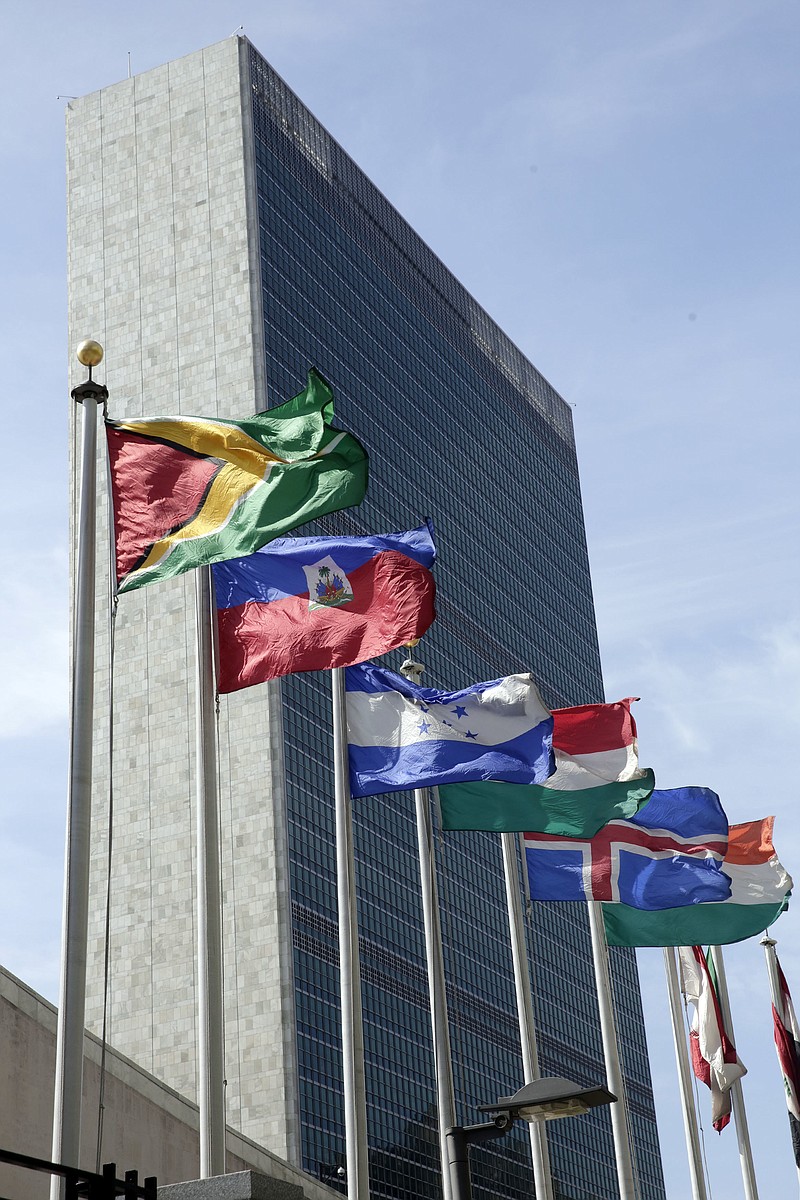UNITED NATIONS (AP) - The U.N. Security Council held its first informal poll Thursday on the dozen candidates competing to succeed Ban Ki-moon as secretary-general on Jan. 1, a secretive vote behind closed doors.
The 15 council members decided not to reveal the results - unlike the informal "straw" polls 10 years ago, which were made public and led to Ban's election to the world's top diplomatic post.
Japan's U.N. Ambassador Koro Bessho, who holds the rotating council presidency, confirmed after the two-hour closed council session that the vote had taken place.
"This is private," Britain's U.N. Ambassador Matthew Rycroft told reporters earlier. "This is a recruitment process. It must be done respecting the confidentiality of the candidates."
The United States, Britain and France stressed Thursday that they want a strong secretary-general to lead the United Nations through turbulent times, but Russia and China haven't made clear what qualities are key for them.
"This could not be a more important job," U.S. Ambassador Samantha Power said as she headed into the council to vote. "And it could not be a more important time to choose the best possible leader for this organization on which so much depends and so many depend."
France's U.N. Ambassador Francois Delattre noted that some have compared the vote for U.N. secretary-general to the vote for a new pope to lead the Catholic church.
It's "critically important" to ensure that the process inspires trust and ensures that "we simply have the best candidate selected to become the world's number one diplomat," he said.
According to the U.N. Charter, the secretary-general is chosen by the 193-member General Assembly on the recommendation of the Security Council. In practice, this has meant that the council's five permanent members - the U.S., Russia, China, Britain and France - have veto power over the candidates.
By tradition, the job of secretary-general has rotated among regions and Asia, Africa, Latin America and Europe have all held the top post. East European nations, including Russia, argue that they have never had a secretary-general and it is their turn. There has also never been a woman secretary-general and a group of 56 nations are campaigning for the first female U.N. chief.
The 12 candidates include six men and six women - eight from Eastern Europe, two from Latin America, one from Western Europe and one from the Asia-Pacific region.
For the first time this year the General Assembly held two-hour webcast hearings where candidates made their case to be the next secretary-general and answered questions from U.N. member states. For the first time, each candidate has also met informally with Security Council members behind closed doors for an hour, Japan's Bessho said.
According to council diplomats, the 15 council members received ballots for each of the 12 candidates with three choices: "encourage," ''discourage" and "no opinion." The result for each candidate will be conveyed to the ambassador from the candidate's country, who will also be told the highest and lowest votes, with no names, the diplomats said.
Another informal poll is expected to take place next week followed by several more in August, and possibly September.
"We've never had 12 candidates before," Britain's Rycroft said. "We need to whittle it down to a reasonable number through the straw polls. That is what straw polls are for. I would encourage people who don't do so well to drop out of the race."
There is no deadline for potential candidates and at least one more, former Australian Prime Minister Kevin Rudd, is making a late bid and has requested that the Australian government formally nominate him.
France's Delattre said the Security Council's goal is to make a recommendation to the General Assembly in the fall.
Ten years ago, there were seven candidates to succeed Kofi Annan as secretary-general. In the final straw poll in early October 2006, Ban received 14 "encourage" votes, 1 "no opinion" and no "discourage" vote, and days later the Security Council nominated the former South Korean foreign minister by acclamation to succeed Annan. In 1996, Annan was vetoed by the French - but after a few days of talks, France agreed to support him and he got the job.
